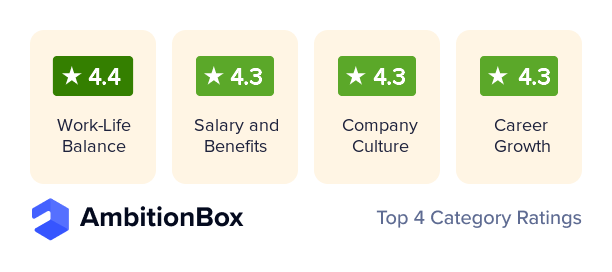Digital technologies fueling transformation in the workplace
The advent of Digital technologies is altering the staffing and recruitment landscape in more ways than one. It is not just the application of different technologies to improve efficiencies and quicken time-to-market, it is also about the myriad ways technology is helping connect jobs and people with skills. The integration of Machine Learning, Artificial Intelligence, and Analytics with HR/Recruitment platforms have helped recruiters amplify their presence, reach and access to global talent. This is made pervasive by optimizing these platforms for mobile.
As per a McKinsey Global Institute report, new talent engagement models are emerging thanks to the rapid shifts in the global economy. A core enabler of this transformation is the digital marketplace for skills. McKinsey estimates that the digital marketplace for talent or in other words ‘online talent platforms’ would drive-up momentum in the global job markets and could potentially add US$2.7tn to the global GDP (2%). This is expected to create 72mn additional full-time equivalents (FTEs) and benefit up to 540mn people by 2025.
Multiple factors are at play today which are expected to change the global talent economy; technology being one of them. A tough talent market – the changing nature of jobs, historically low unemployment rates, skills shortage, and geopolitical challenges is bringing about a shift in the global staffing industry. While the traditional workforce for both permanent and temporary jobs still holds fort, we are witnessing a growth in both demand and supply for ‘on-demand talent’. Hiring on-demand talent is also known as ‘shift staffing’. In general terms “Gig Economy’ refers to the evolving talent landscape which involves connecting people with requisite skills and the companies who have immediate openings for gigs/shifts. This phenomenon is also known as the freelance economy, sharing economy or on-demand economy.
The changing global workforce - the gig economy
Sample this: Figures provided by the Office of National Statistics put ~13% of UK’s 29mn strong workforce as self-employed in 2009 (May – July) which has increased to 15% (total workforce of 31.7mn) in 2016. These ‘self employed’ workers as defined then constitute the bulk of gig workers today. Similarly, according to a research done by Upwork, a global freelancing platform, US has 57.3mn people engaged in some kind of freelance work which is about 17% of the US working populace. By 2027, the number of Americans opting for freelance work will rise to 86.5mn while the number of non-freelancers is expected to reduce to 83.4mn (down from 102.7mn in 2017). The more important fact to emerge out of the report is the sheer number of millennials who are a part of this new economy. It is estimated that by 2020, ~40% of the US workforce will be independent contractors, according to the 2016 Ernst & Young report.
In yet another survey conducted in 2016 by McKinsey, up to 162mn people across the United States and the European Union (EU-15) representing between 20% and 30% of the working populace are independent workers. According to the report the three defining features of ‘independent work’ are – high level of autonomy, payment by task/assignment/sales and short duration of the projects
The ease of finding gigs via digital work platforms powered by AI and Robotics will fuel the next wave of disruption.
The challenge to recruiters in the gig economy
Let us get the elephant out of the room first; any disruption driven by technology is going to have far-reaching effects on established business and revenue models; recruitment is no exception. The more mainstream the gig economy becomes, the complexity of recruitment is going to increase manifold. While the emergence of digital work platforms such as Snagajob (earlier SnagWork), ShiftGig, Wonolo, PeoplePerHour, UpWork and ClickWorker will no doubt speed up processes and the volume of candidates searching for gigs, it will also bring in a layer of complexity between jobs and candidates. For e.g for technical and IT roles, assessment of skills, culture fit, and background verification will still be very important which cannot be taken care of by these platforms. Add to that aspects of compliance and regulatory laws, tweaking existing processes to incorporate gig workers who may be required to work in teams. For example, British labor laws for the workers in the gig economy are still being reviewed.
‘Future of Work’ is flexibility
According to an estimate, there are upwards of 2,300 gig aggregator/online crowdsourcing platforms today – Amazon Mechanical Turk (AMT), TopCoder, UpWork and Freelancer.com being the largest and the most popular. These platforms leverage technology to bring together hourly jobs and potential candidates. Hourly hiring market is emergent and promises new business opportunities to staffing firms. One of the key reasons which attracts candidates towards the gig economy is the flexibility it offers. For the first time they are able to choose the kind of work they want to do, the number of working hours they are willing to put in and even their employers. This freedom of choice which is available to gig workers is tremendous.
From a recruiter’s perspective, hiring resources for gigs reduces the effort that goes in to functions like candidate search, screen and other related functions. One of the basic premises of this model is that it is usually the gig seeker who is driven towards finding a right match for his skills unlike the traditional way. This model works well with people who are self-driven, experienced, motivated, proactive and need negligible training for the job.
While smaller companies in the restaurant, fulfillment, and supply chain domains employing blue collar workers have been the first movers, digital/tech start-ups and large corporations are also starting to see value and efficiency in this model. For e.g. Uber, Lyft and CitySprint have been the pioneers of the gig economy for their ride-sharing and same-day delivery aggregator platforms respectively, though rocked by law suits having faced adverse tribunal rulings. In mid-2018, global consulting & advisory behemoth Ernst & Young launched GigNow, an advanced technology platform that connects people seeking short-term employment and job flexibility with relevant opportunities at EY in India. GigNow is a part of EY’s new global programs designed to prepare the workforce and business for the future of work. The technology platform, built using Agile methodologies enables an immersive experience to candidates; ensuring quick on-boarding so that people can join projects across locations and make meaningful contributions. Global consumer goods manufacturer and marketer Unilever is one of the key customers of the UpWork platform, so are Pinterest and Panasonic. Many companies, facing talent crunch are open to experimenting with new avenues – crowdsourcing, joint ventures, outsourcing, online marketplaces, and hiring freelancers etc. Proctor & Gamble has piloted the concept of ‘on-demand talent’ to augment its workforce by recruiting freelance business talent. It was found that products from the pilot program had a lesser concept-to-delivery time which also came at reduced costs. Similar business needs is leading global companies to use work-sharing platforms to hire tech talent for software development and for managing projects.
What are the motivations?
The gig economy is a win-win for both candidates and employers and this is driving its rapid adoption. Like any other disruptive concept, this too has its pitfalls. However, the benefits accruing to the participants are far too many. As per an article from Business News Daily the advantages for a gig worker are: more latitude and flexibility over the type of work and independence to choose from a large number of options – answers to what, when, where and how much. Many gig workers are full-time freelance workers while many others already have a full-time job and are experimenting with additional gigs, often to pursue their passion for skills, networking opportunities, and of course money. A lot of workers in the latter category are moonlighters.
From an employer perspective cost is one of the more defining aspects – the gig economy saves employers’ payroll costs (salaries, benefits) and overhead costs (office, infrastructure). A team employing gig workers is inherently more diverse than teams built using traditional recruitment methodologies. It provides access to multilingual, mufti-cultural talent with diverse as well as specialized skill sets and subject matter experts (SMEs) . The teams are also able to scale rapidly based on the requirements – scaling up and down as quickly as changes in the business environment.
Top trends to look for in 2019:
1. Higher adoption
Many large corporations with global operations have already made their foray in to the gig economy and are creating talent benches/pools which can be be pushed in to service when there is demand. While some companies are developing their own platforms using modern application development methodologies and hosting them on the cloud, others are getting hooked to the work-sharing platforms available in the market. The flexibility on offer makes the gig economy appealing to both companies as well as candidates.
2. Wide-ranging functions to come within the ambit of the gig economy
Fortune 500 and mid-market companies are frequently outsourcing parts of their marketing, payroll, human resources and procurement functions using such platforms. For e.g. within cybersecurity, companies are waking up to the possibility of using external talent to work on threat identification. This model enables the companies to be flexible in their approach and enhances their ability to cobble up teams at short notice and scale up or down depending on their business goals.
3. Integration of newer technologies
The gig economy is completely technology driven; work-sharing platforms are literally the base on which the offer is built. Recruitment has become more technology centric than before and newer technologies are being integrated in to existing platforms – artificial intelligence, machine learning and automation being the more important ones. Add to this the improved workspace collaboration scenario between workers and clients which allows for face to face communication, easy sharing of work status for real-time reviews etc. leading to higher efficiencies.
4. Differentiated skills will drive demand and price
For all practical purposes, the gig economy is a candidates’ market. Companies are already reeling under pressure owing to non availability of requisite talent, particularly niche technology skills. This makes the gig seekers’ proposition much stronger and those with the right set of skills will command a premium in the market. Companies looking for talent will have to shell out higher rates to have them on board and stay ahead of the competitive curve. Many analysts feel that while companies may try differentiate on the basis of candidate experience and ease of engagement or the underlying technology, the key differentiator will be skills.











